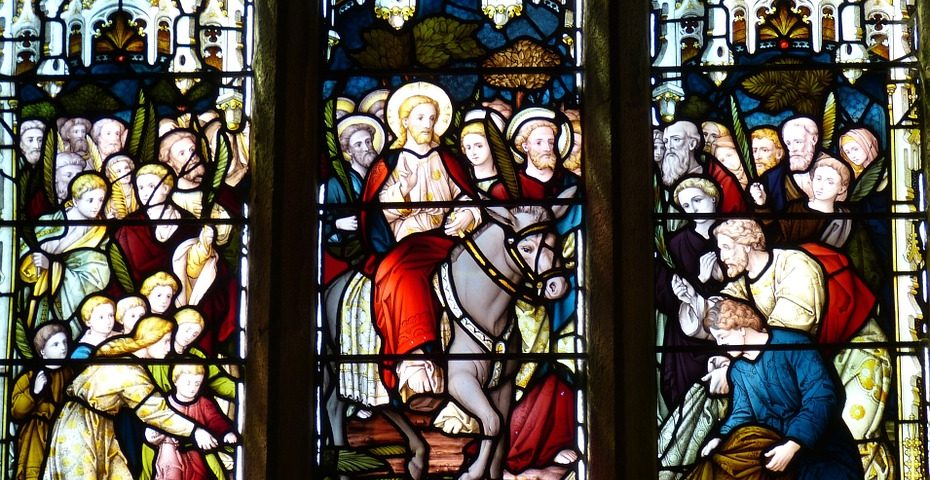Egeria, a fourth-century widow and pilgrim to Jerusalem, describes the procession from the Mount of Olives to the Church of the Holy Sepulchre.
Enacting Matthew 21:16 that “out of the mouths of infants and nursing babies you have prepared praise,” children carried palms and branches before the bishop shouting, “Blessed is he that comes in the Name of the Lord!” The rest joined in the children’s praises as they made their way to the church to pray before the Cross. It was later in Rome, we know from Saint Leo’s sermons, that the Passion story was read to the people on the Sunday before Easter. By about the twelfth century, the custom of processing into the church with palms and branches had reached Rome and the whole of Europe. Often these processions featured either the bishop, a donkey, or even the Blessed Sacrament to symbolize Jesus in procession to Jerusalem. This is the liturgy we have inherited, which we celebrate today.
On Palm Sunday we begin to reenact the drama of Jesus’s Passover of suffering, death, and resurrection. Like the crowd that praised and welcomed Jesus into his city of peace, we too become the people who later shout “Crucify him!” We hear the story of Jesus’ betrayal, trial, and death. We imagine ourselves the crowd. We shout with them to kill the Lord of glory. It’s the unresolved ambivalence in the liturgy of Palm Sunday. Real joy and real complicity, real hope and real betrayal contend for Jesus who stands before us silent, “like a lamb that is led to slaughter.” Like our lives, so mixed with love and hate, betrayal and allegiance, we stand before Jesus praising him at one moment and cursing him the next. Palm Sunday tells not only of Jesus’s Passion, it tells us our story too.
But this is the glorious thing: on Palm Sunday we show ourselves in all our ambiguity with praise and danger mixed. And even though Jesus will suffer because of it, he pressed forward into the city. He enters the treacherous Jerusalem of our hearts, the Via Dolorosa of our souls, because he loves us more than we love him. As he faces the people of Jerusalem, so too does he face us. The only questions are these: Will we look at him this week? Will we be present to Jesus this Holy Week? I hope so.
And these are spiritual questions not erased by quarantine nor by the doors of any churches locked. For our Christ walks through locked doors.










